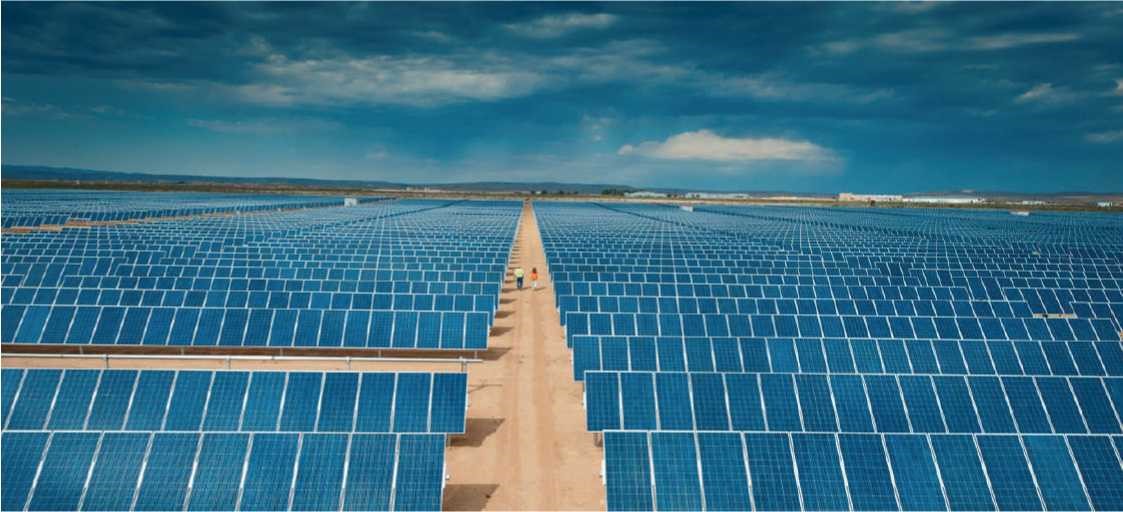Green Finance19.12.2020
UNDP and Damu fund stimulate investment in small-scale

Saule Abisheva, Director of the Department for Subsidies, Damu Entrepreneurship Development Fund JSC
RES FACILITIES
The development of a “green” economy, including renewable energy (RE), is one of the priority tasks of the Government of Kazakhstan. In the period from 2016 to 2019, the installed capacity of renewable energy facilities in Kazakhstan increased by 3.5 times - from 295 MW to 1,050 MW. This growth was made possible by the development of large renewable energy facilities with a capacity of 50 MW and above. However, small-scale projects implemented by private companies and individuals are still underdeveloped. Meanwhile, international practice shows that the use of RE by private households is beneficial and promising. In Germany, for example, 45% of solar power plants in the country are installed by private households and small businesses: these are small (up to 30 kW) and medium-scale (up to 700 kW) systems, installed mainly on the roofs of private houses, as well as business enterprises.
To stimulate investment in small-scale renewable energy facilities, on February 24 this year the United Nations Development Program (UNDP) and Damu Entrepreneurship Development Fund JSC signed a cooperation agreement, under which entrepreneurs will be given financial support for the installation of renewable energy facilities. In particular, one of the following financial mechanisms is provided:
• 10% subsidization of the interest rate;
• issue of «green» bonds;
• subsidizing up to 25%. of the main loan
The procedure is quite simple: the project applicant (borrower) applies to the financing institution (STB / IFI / leasing company) to preliminarily consider the possibility of obtaining a loan for the project, after which the applicant applies to Damu for a subsidy under the program. The financing institution has clear and simple criteria for correlating projects with subsidy mechanisms.
For example, recently we have received an application from a business that plans to build a solar power plant with a capacity of up to 1000 kW (estimated annual output - 1,314,000 kWh, compare: the annual average electricity consumption by one household is 2,000-2,500 kWh). This power plant will supply electricity to a nearby greenhouse and a metalworking plant, thereby allowing these enterprises to save on the costs of purchasing electricity from the grid. (This project is being implemented in Turkestan oblast where the tariff for legal entities is about 25 KZT per 1 kWh.)
It should be noted that at the moment the application of these technologies depends on the final cost of electrical and / or thermal energy. For example, in Shymkent city and Turkestan oblast, small and medium-sized businesses are already interested in using solar PV panels as this reduces the consumption of electricity from the grid, which ultimately allows reducing electricity costs.
The introduction of small-scale renewable energy facilities will significantly improve the quality of life. For example, there are still schools without hot water supply. Coal is used in large quantities for heating both by the population and social facilities located in the areas not covered by central heating, which also creates additional inconveniences. The use of renewable energy technologies will also partially solve this issue.
Today we already see a great potential for the use and application of small-scale renewable energy technologies, especially by peasant farms and farm enterprises, SMEs. Every year, with the growth of tariffs, the use of renewable energy technologies becomes more and more economically viable.
A joint initiative of UNDP and the Damu Fund will contribute to the fulfillment of Kazakhstan's commitments under the Paris Agreement, as well as the achievement of target indicators for SDG 7: Affordable and Clean Energy. Financial support measures are also intended to contribute to increasing the share of renewable energyin the country's energy balance to 3% by the end of 2020, 6% by 2025 and 10% by 2030.
The use of solar collectors for the production of hot water and heating in the south of the country is already economically viable. Solar irradiation there is comparable to that of countries located around the Mediterranean sea, and together with the proposed subsidies, it allows investment to be paid off within 5-7 years.
Financial support measures are carried out within the framework of the UNDP project «Derisking RE investment», which was launched in partnership with the Ministry of Energy of the Republic of Kazakhstan and with the support from the Global Environment Facility in 2018.
IRENA accepting renewable energy project proposals in Central Asia until August 15
Astana to host Electronica Expo Kazakhstan Electronics Exhibition
WB gives rundown of Azerbaijan's green energy grid volume prospects
US solar sets new records as renewables nearly match natural gas – EIA
‘Wings’ on poles: Bill Gates-backed breakthrough wind turbine facility breaks ground
Perovskite tandem solar cell achieves new efficiency record
Kazakhstan and China endorse draft SCO joint statement on sustainable energy development
Innovative research on organic solar cells for space applications
Kazakhstan and Uzbekistan drive green energy progress in Central Asia
KazMunayGas launches pilot green hydrogen project in Atyrau
How private homeowners in Kazakhstan can make money from solar panels
14 countries are investing in Kazakhstan's renewable energy sector through auctions
How green hydrogen could transform Kazakhstan’s energy sector
IKEA offers ready-to-use solar power systems for balconies
Adani commissions India’s first off-grid green hydrogen pilot plant
Tajikistan unveils green energy roadmap at international conference in Dushanbe
Hydropower projects selected through KOREM Auction in Kazakhstan
EU reaches political deal to simplify CBAM
New research could unlock the potential of bladeless wind turbines
Uzbekistan to launch 16 renewable energy facilities by the end of 2025











